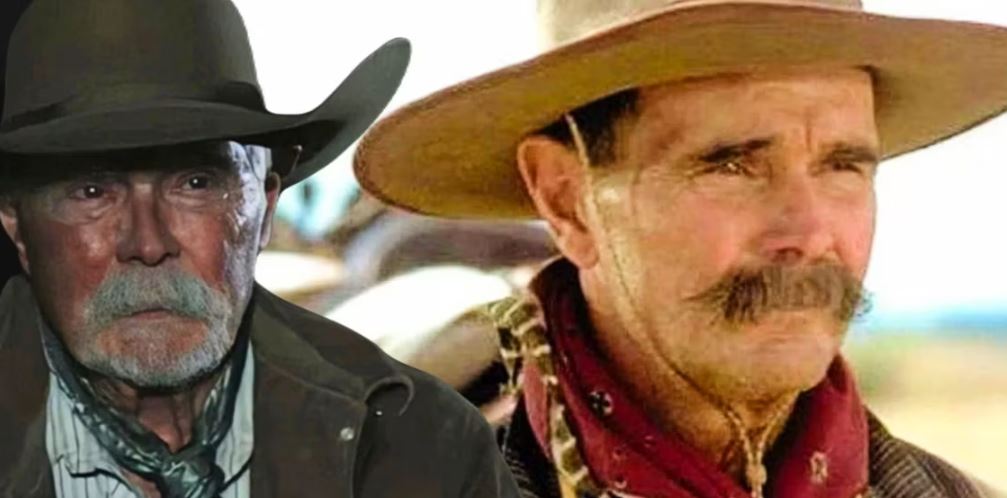Emmett Walsh isn’t the most important Yellowstone character, but his death was still one of the most tragic. Taylor Sheridan’s Western show delves deep into the complex dynamics of the Dutton family, who own the largest contiguous ranch in the United States. Yellowstone masterfully intertwines themes of power, love, and loyalty against the rugged backdrop of Montana’s landscapes. Its narrative is rich with the tension between preserving traditions and embracing the inevitable changes brought by modernity. The Duttons navigate threats from land developers, conflicts at the bordering national park, and internal family strife.
Within this sprawling saga, Emmett Walsh emerges as a standout in the Yellowstone cast whose journey, though sparingly showcased, encapsulates the soul of the cowboy ethos. Portrayed by the venerable Buck Taylor, Walsh is introduced in the very first episode as the chairman of the Stock Growers Association and makes a poignant exit in season 5, episode 6, “Cigarettes, Whiskey, a Meadow and You”. His character, while not central in screen time, is pivotal in spirit. Emmett’s presence from beginning to near-present threads a narrative continuity, echoing Yellowstone’s deep-seated themes of loyalty, tradition, and the inexorable passage of time.
Emmett Walsh Died Peacefully In His Sleep In Yellowstone Season 5
It Was One Of The Few Peaceful Deaths In The Series

In a series punctuated by violence and power struggles, Emmett Walsh’s serene departure in Yellowstone stands out for its poignancy. During the annual Dutton cattle drive — a tradition embodying the very essence of the cowboy lifestyle — Emmett passes away peacefully in his sleep, surrounded by the landscapes and people he cherishes. This manner of death, almost unheard of amidst the show’s usual tumult, signifies a profound moment of tranquility and fulfillment.
John Dutton’s reflection, “He just died on the trail, like every cowboy dreams it,” delivered by Kevin Costner with a blend of sadness and reverence, underscores the significance of Emmett’s passing. It’s not merely the loss of a friend; it’s an elegy to fading traditions and the vanishing spirit of the West. Emmett Walsh’s death, peaceful amidst chaos, offers a stark contrast to the rest of the show’s narrative, imbued with conflict and struggle.
The death reflects a rare moment of closure, untouched by the machinations and violence that frequently engulf the Dutton family. This departure from the norm underscores Emmett’s role as a symbol of the enduring, albeit diminishing, cowboy way of life. His passing is a poignant reminder of the values the Duttons are fighting to preserve: a connection to the land, a commitment to one’s community, and a life lived with integrity. In a world where such ideals seem increasingly obsolete, Emmett’s peaceful end under the stars, hat on chest, is a dignified conclusion amidst the storms of life.
Emmett Actor Buck Taylor Was A Famous Western Actor Way Before Yellowstone
He Played The Iconic Newly O’Brien In Gunsmoke & Featured In Another Taylor Sheridan Project

Long before his memorable role in Yellowstone, Buck Taylor was synonymous with the Western genre, having carved out a distinguished career that resonated with fans across decades. Notably, Taylor’s portrayal of Newly O’Brien in Gunsmoke, one of television’s most renowned Westerns, left an indelible mark on the genre. His character in Gunsmoke shared a similar essence with Emmett Walsh — both men of principle, deeply rooted in the values of the West. This parallel underscores Taylor’s adeptness at bringing to life characters that embody the spirit of the cowboy, a testament to his significant contribution to the Western genre.
Beyond Gunsmoke, Taylor’s roles as “Turkey Creek” Jack Johnson in Tombstone and notably as the Old Man in Taylor Sheridan’s Hell or High Water highlight his versatility and deep connection to stories of the American frontier. His involvement in Hell or High Water, another Sheridan project, further cements the actor’s pivotal place within narratives exploring themes of loyalty, justice, and survival in a changing America. Through his work, Buck Taylor not only entertains but also preserves the cultural memory of the American West, making his contribution to Yellowstone not just another role but a continuation of a storied legacy.
